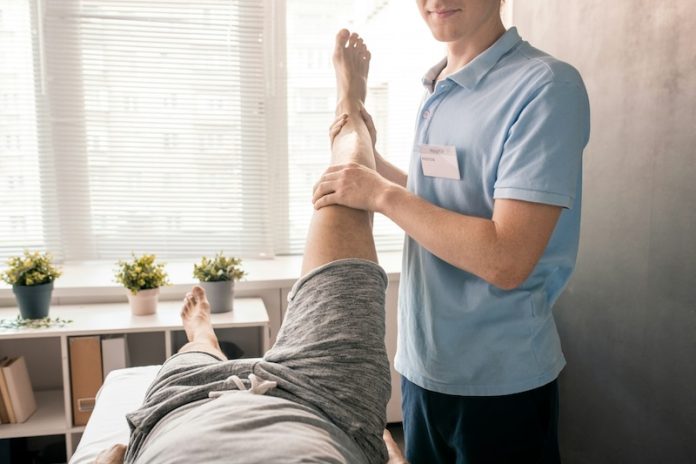
For people suffering from chronic knee pain, especially those over 50, a new treatment is offering hope and relief. Researchers at MedStar Georgetown University Hospital have introduced a minimally invasive procedure called genicular nerve radiofrequency ablation.
This method targets the nerves responsible for transmitting pain signals, providing an alternative to surgery for individuals dealing with knee pain caused by osteoarthritis.
The procedure uses radio waves to treat pain-transmitting nerves near the knee. Interventional radiologists insert small probe needles near these nerves and generate heat through radiofrequency waves.
This heat numbs or disables the nerves, stopping them from sending pain signals to the brain. Importantly, the treatment doesn’t interfere with muscle control or balance, making it both safe and effective.
The team conducted a study with 36 participants to evaluate the treatment’s effectiveness. The study also looked at how factors like age, gender, body weight, previous surgeries, and other health conditions such as fibromyalgia might affect the outcomes.
Every participant experienced a reduction in knee pain, with individuals aged 50 and older reporting the most significant improvements. Many also noted better knee functionality, enabling them to move more freely and with less discomfort.
One of the biggest benefits of this treatment is its simplicity. The procedure requires no stitches, and patients typically only need small bandages afterward. Recovery is quick, allowing people to return to their daily routines without extended downtime.
The pain relief lasts from six months to two years, providing a long-lasting solution for those struggling with chronic knee pain.
The potential of this treatment goes beyond the knee. Researchers are already exploring its use for other areas of chronic pain, including the shoulders, hips, and sacroiliac joints. This broader application could benefit countless individuals dealing with pain in various parts of their body.
The introduction of genicular nerve radiofrequency ablation is a significant advancement in managing chronic pain.
It offers a non-surgical option for those seeking relief, especially older adults for whom surgery might not be an ideal choice. By improving mobility and reducing discomfort, this treatment is helping people reclaim their quality of life and stay active.
As research continues, scientists aim to identify more factors that influence the success of this procedure and expand its use to treat a wider range of conditions.
For now, this innovative method is a promising solution for those looking for effective, non-invasive relief from knee pain.
If you care about pain, please read studies about how to manage your back pain, and Krill oil could improve muscle health in older people.
For more information about pain, please see recent studies about how to live pain-free with arthritis, and results showing common native American plant may help reduce diarrhea and pain.
Copyright © 2025 Knowridge Science Report. All rights reserved.



